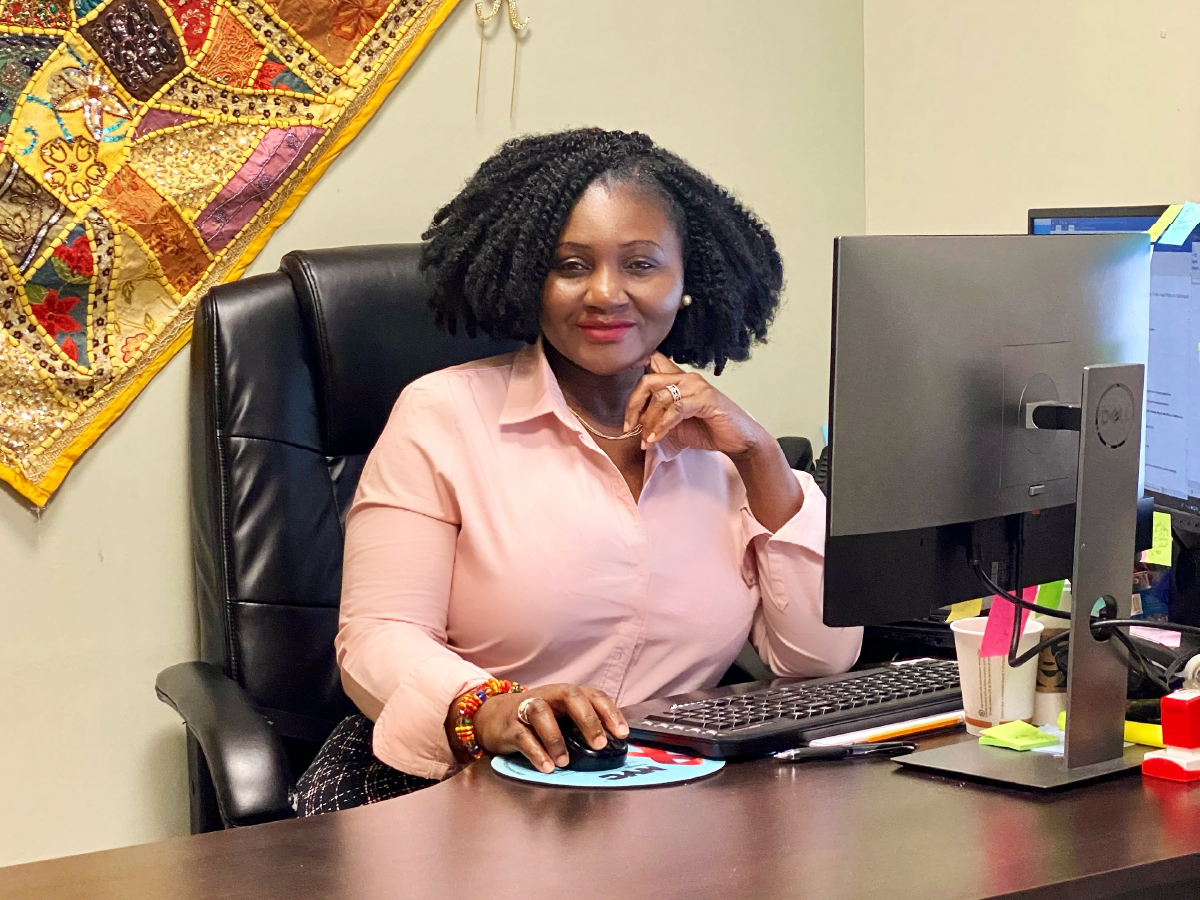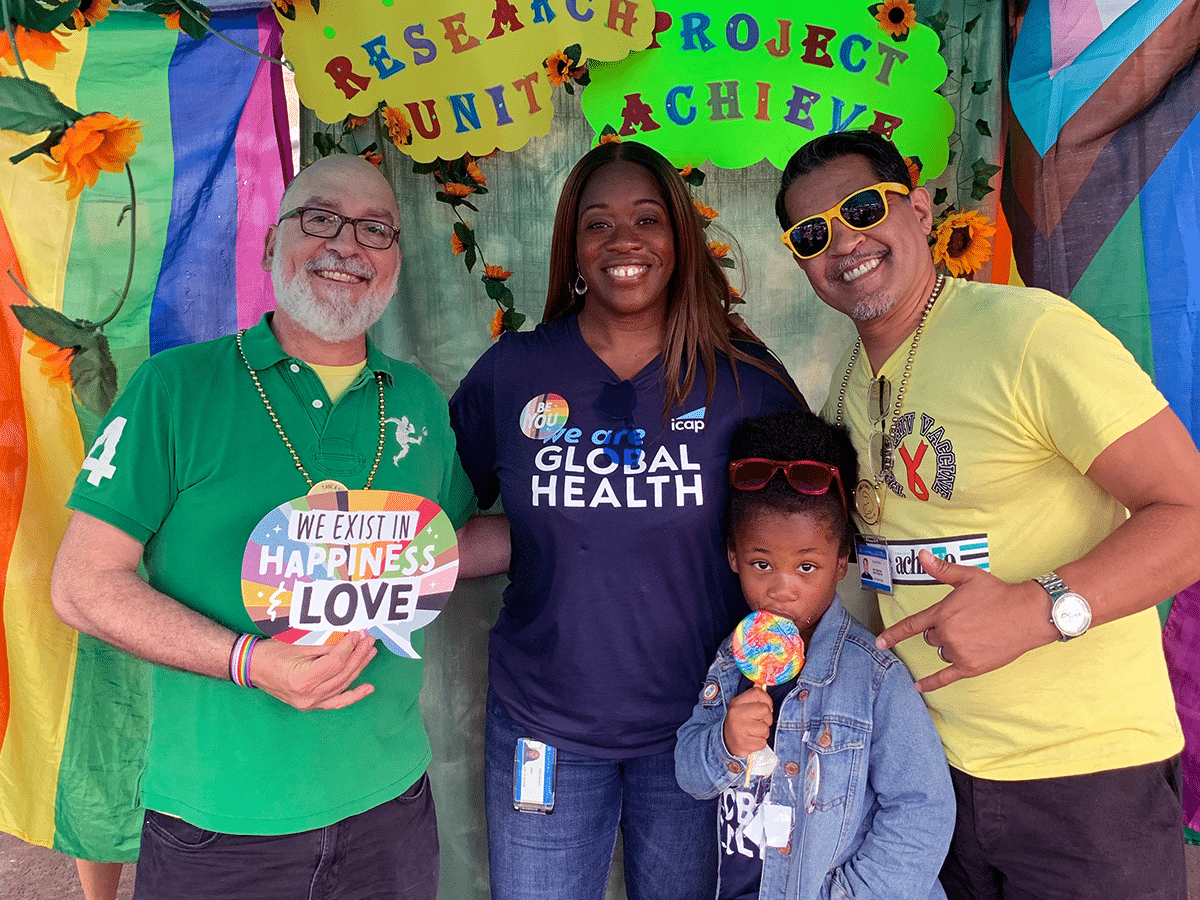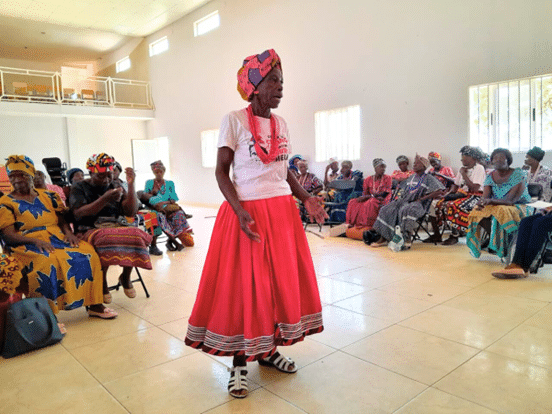Growing up in Cameroon, Rita Sondengam was no stranger to the faces that hide behind the numbers of some of the world’s most pressing public health emergencies like HIV/AIDS, malaria, dysentery, and TB. But for her, these weren’t just statistics, faceless numbers in a spreadsheet. These were people. Her people. And, as a young girl, she decided she was going to make a difference.
After completing advanced studies in history, Sondengam moved from Cameroon to New York City to complete her master’s in public health at New York Medical College in 2002. Eager to put into practice the things she was learning in the classroom, Sondengam jumped at an opportunity to work as a research assistant on a community outreach project led by ICAP’s global director and founder Wafaa El-Sadr, who at the time was most recognized for her work launching community-centered models for care in response to the AIDS crisis in New York City’s Harlem neighborhood. (This project was a precursor of Dr. El-Sadr’s efforts to expand her community outreach model approach from NYC to the global community with the founding of ICAP in 2003.) Much to Sondengam’s surprise, the project had been started to combat the spread of latent TB among French speaking Africans living in Harlem. “I thought the U.S. had everything,” said Sondengam. But, she realized, “there are pockets that have the same challenges as I had experienced as a child [in Cameroon].” Drawing on her lived experiences and her new knowledge in public health research, Sondengam set out to fulfill her childhood commitment to make a difference in the health and well-being of the people around her. This project marked the beginning of Sondengam’s career as a successful researcher in public health projects around the world. Over the last 15 years, she has worked on a number of leading-edge research initiatives to reduce the acquisition and transmission of HIV around the world including a several of ICAP’s Population-based HIV Impact Assessment (PHIA) surveys and the Bronx Prevention Center, where she is currently the clinical research site director.And now, she is empowering young public health researchers to do the same as the direct supervisor of a small team of researchers in the early stages of their research careers.
Sondengam actively seeks out daily interactions to develop and grow junior colleagues, describing this as the best part of her job. “Public health research is not easy, but I am here because I was mentored and encouraged to try,” said Sondengam. “I look at every moment as an opportunity to share knowledge.” With this mentor-in-the-moment approach, each interaction with her staff—whether a casual conversation in the break room or a formal project meeting—provides her an opportunity to celebrate an excellent contribution, provide supportive feedback on implementation, or field questions about pursuing public health research as a career. And, as she saw during the early days of the COVID-19 pandemic, this approach is building better, more resilient health workers—not just in the future, but now.
As COVID-19 swept into every corner of everyday life, Sondengam and her team at the Bronx Prevention Center found themselves at the epicenter of the emerging pandemic in the U.S. Yet, despite their fears for themselves, their families, and their colleagues, she watched as they came together to help others face unnerving odds, as advocates not only for their friends and neighbors, but also for people they may never meet—providing emotional support and encouragement to colleagues in the office and tirelessly driving forward public health research that directly contributed to the global COVID-19 response.
Her team’s efforts shined a light during some of the New York City’s darkest of days, but perhaps more importantly, they reminded Sondengam of the importance of hope. Hope in the science, hope in the research, and most of all, hope in a world where quality health services are available to all, so that people and communities can thrive and prosper.








